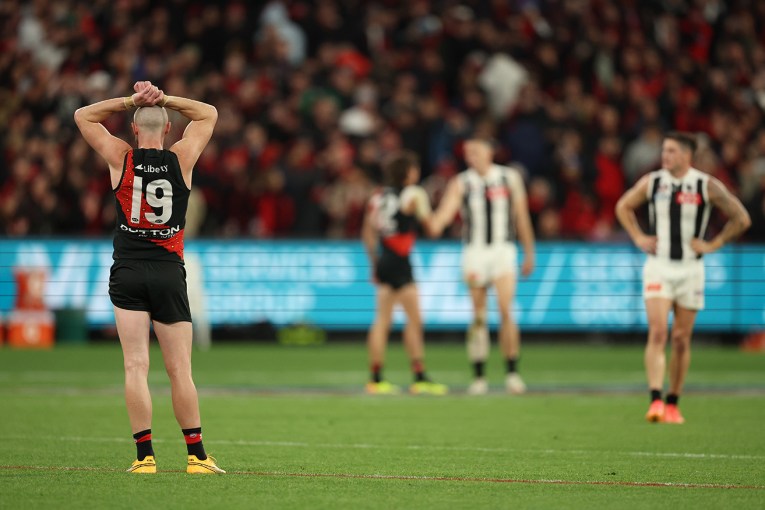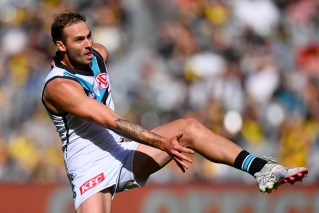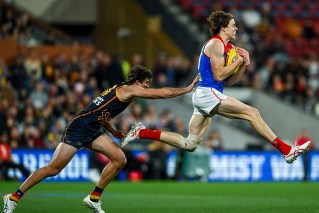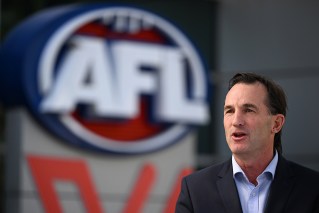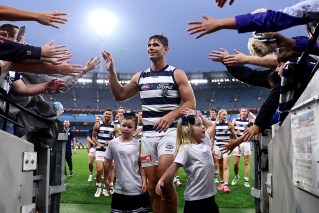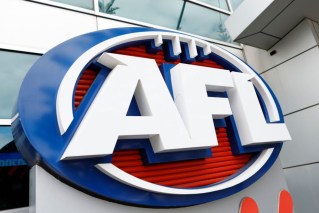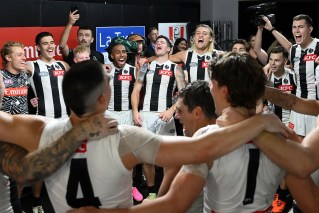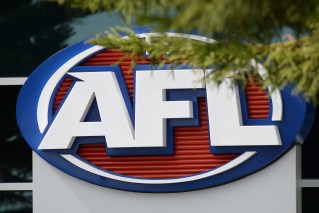Footy’s rivalries spark more emotion in the stands these days than on the field
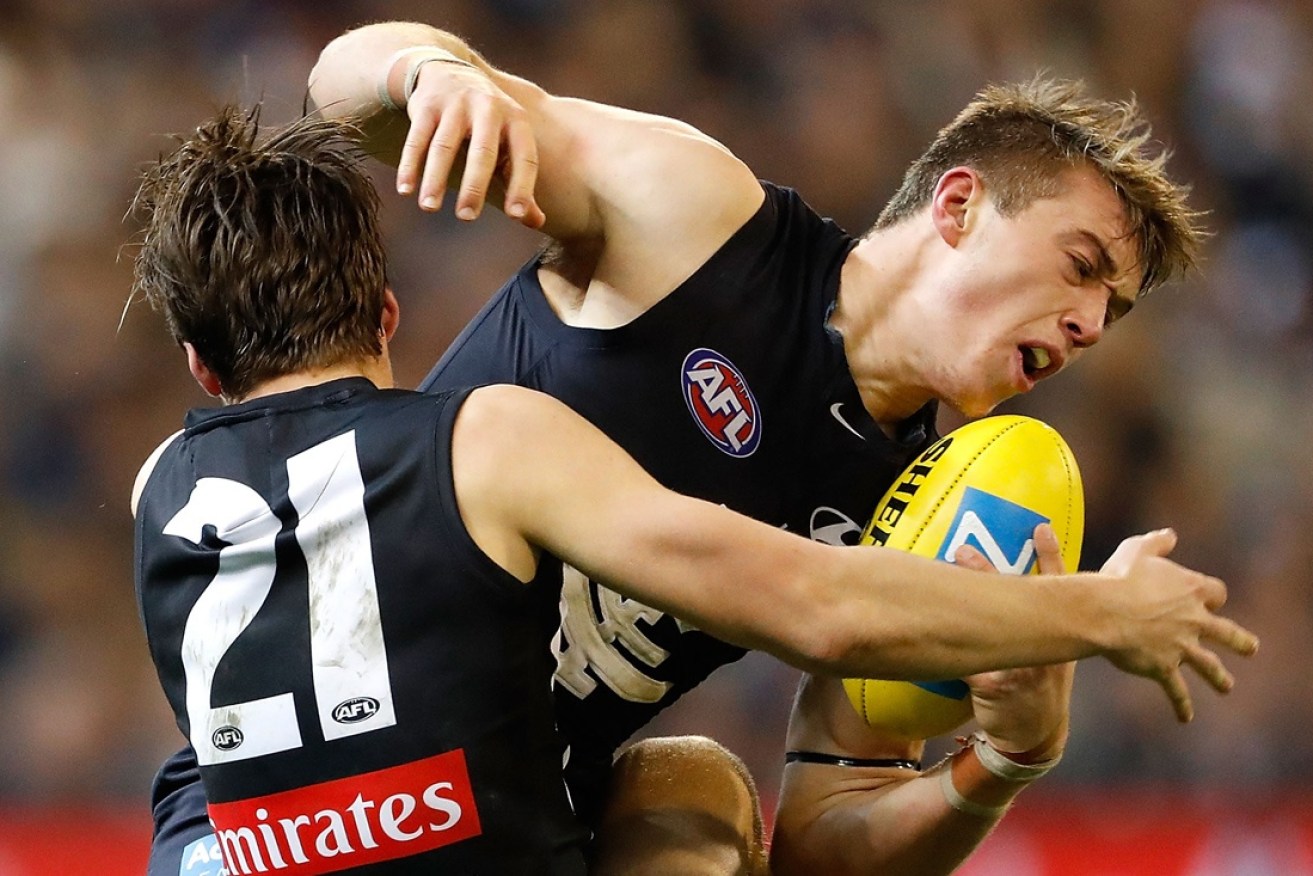
Carlton and Collingwood have made slow starts to 2017. Photo: Getty
Current Carlton and Collingwood players must wonder what all the fuss is about.
There’s a lot of talk about the rivalry between two of the AFL’s heavyweight clubs but in terms of their matches they rarely provide anything to write home about.
The Blues and the Magpies haven’t met in a final since 1988, haven’t played a game decided by under two goals since 2004 and have seen recent crowds dip alarmingly.
There’s also a lack of ill-feeling between the two sides on-field.
This weekend’s instalment of ‘footy’s most famous rivalry’ is being hyped up more than normal, given that it is celebrated with Collingwood’s 125th anniversary, but do the players and coaches treat it differently to another game?
Star midfielder Mick McGuane – who grew up as a Magpies fan and played 152 games for Collingwood and three for Carlton between 1986 and 1997 – told The New Daily players don’t get caught up in the “external noise” of club rivalries.
That’s attributable to the age of line coaches, processes, structures, free agency and recruitment from all over the country, he says.
But he added that even if it’s just another match for the players, some of that “noise” from fans can seep in.
“We’re human, we read the paper,” he said.
“We have mates who barrack for Collingwood or barrack for Carlton who always talk about it … you know how big a game it is for the fans.”
Journalist, author and Collingwood historian Michael Roberts was asked to speak to the current crop of Magpie players about the club’s hatred of Carlton this week.
He agrees with McGuane and feels that the rise of football’s professionalism has seen the bad feeling in footy’s rivalries fall.
“A bunch of 20-somethings sitting in a room [at Collingwood] and a crusty old dude gets wheeled out to talk about the old days … I wouldn’t blame them for rolling their eyes,” he told The New Daily.

McGuane was a member of Collingwood’s 1990 premiership-winning side. Photo: Getty
“I don’t think the historical rivalries mean that much to the players and coaches.
“In the old days, it meant more to people around the club, but these days it’s carried on by the fans.
“The days of fire and brimstone speeches about such things are long gone.”
Roberts says fleeting rivalries arise for specific groups of players, out of a series of great contests in important games, or a “perceived injustice”.
He cites Hawthorn and Geelong, and the Western Bulldogs and Greater Western Sydney, as modern battles where you “feel an edge”, but adds that such rivalries “drift in and drift out”.
For fans like Roberts, the animosity between Carlton and Collingwood persists – something he says was sparked by a “disgraceful” 1910 Grand Final that ignited the “ill-feeling”.
Collingwood beat the Blues – premiers in 1906, 1907 and 1908 – by 14 points in that showdown, which was preceded by three star Blues being outed for taking bribes on the eve of the finals and a decider marred by violence.
With emotions “sparked”, all you need are high-stakes games – grand finals between the clubs in 1915, 1918 and 1920 took care of that – and regular injections of controversy and a rivalry will flourish.
The heated relationship was supercharged by dramatic grand finals in 1970, 1979 and 1981 and the fact that Roberts recites all of this at the drop of the hat says it all: he, the fan, will always harbour ill-feeling towards the club’s fiercest rivals.
That’s because tribal loyalty runs thickest on the terraces, and not on the field.
Rivalries between sporting clubs can originate from great games or infamous incidents, but they’re nurtured by generations of fans – not players and coaches.
